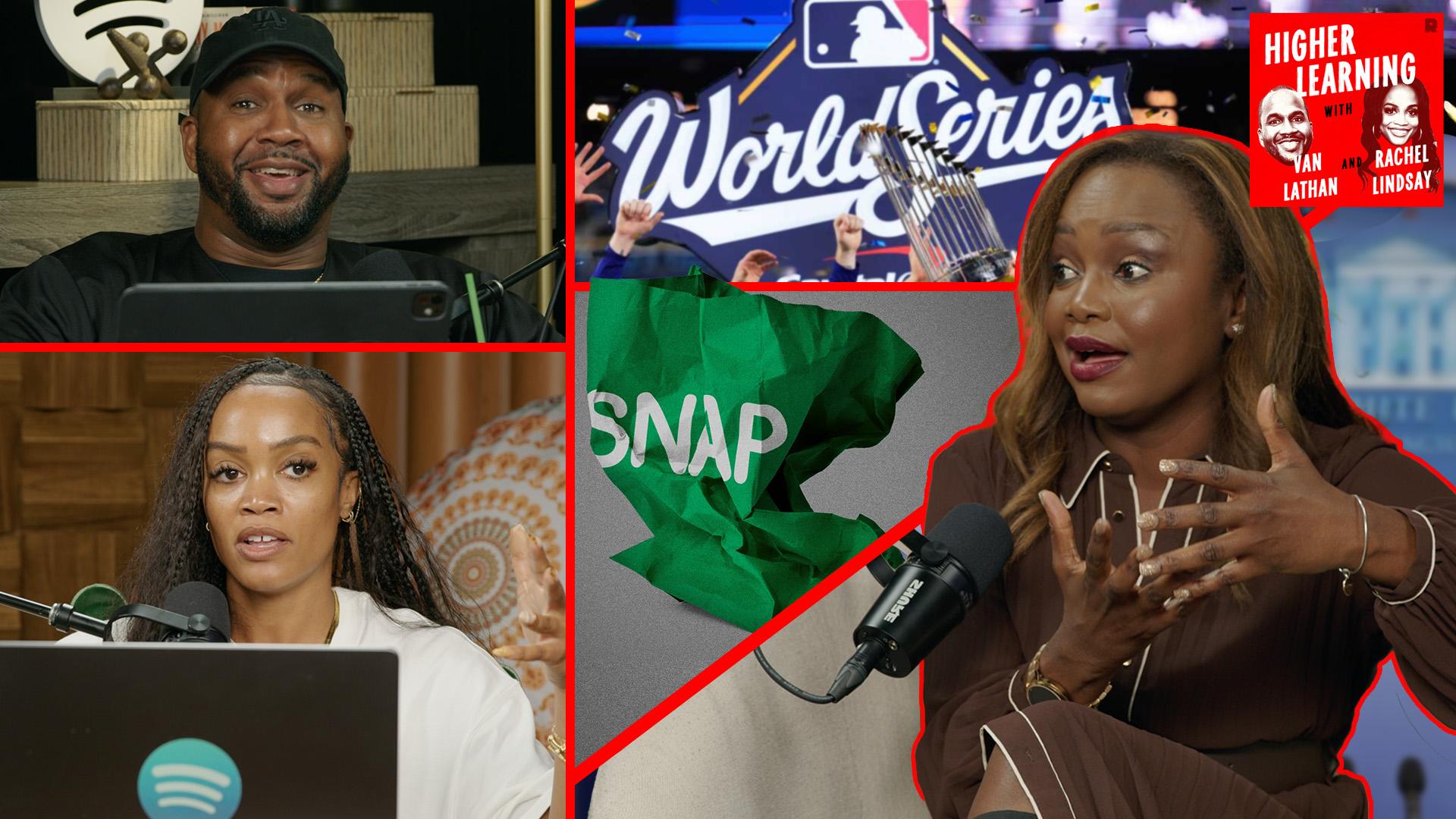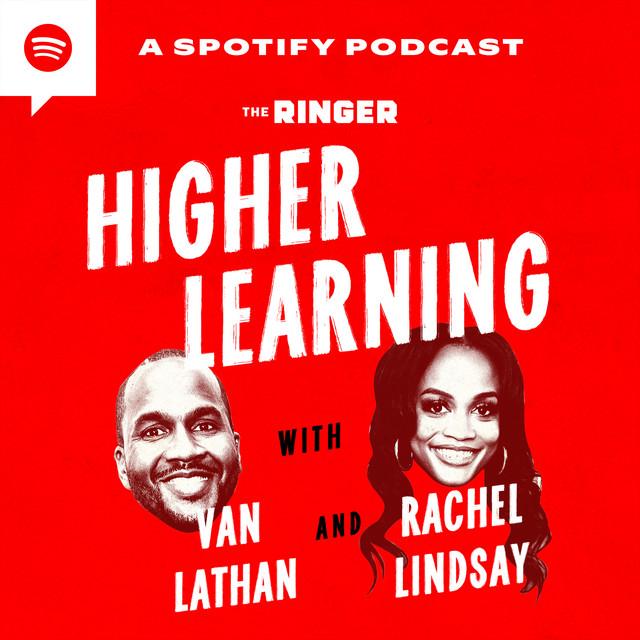
Higher Learning With Van Lathan and Rachel Lindsay
A Broken White House, With Karine Jean-Pierre. Plus, the End of SNAP?
About the episode
Jomi Adeniran joins Rachel and Van to react to the Dodgers winning a classic World Series before discussing the Trump administration’s efforts to cut the funding for SNAP. Then, Karine Jean-Pierre, the White House press secretary for the Biden administration, joins to talk about her new book, Independent: A Look Inside a Broken White House, Outside the Party Lines; the response to her book tour; and the reasons behind her exit from the Democratic Party.
Hosts: Van Lathan and Rachel Lindsay
Guests: Oluwajomiloju Adeniran and Karine Jean-Pierre
Producers: Donnie Beacham Jr. and Ashleigh Smith
Video Supervision: Chris Thomas
In the following excerpt, Karine Jean-Pierre discusses dealing with the press as White House press secretary.
Van Lathan: What percentage of politics would you say is just straight-up lying?
Karine Jean-Pierre: Oh my gosh.
Lathan: A percent. Give me a number.
Jean-Pierre: Well, there’s a lot of performative, that’s for sure.
Lathan: Just straight-up lying.
Jean-Pierre: I don’t know.
Lathan: What percentage of politics is just straight lying?
Jean-Pierre: I think every candidate, every person, is different. I mean, you look at the person in the White House, that’s straight-up lying 24/7. I don’t think everyone is like him, but I think it depends—
Lathan: What percentage of what you said up there was just straight lies?
Jean-Pierre: It was not lies.
Lathan: None of it was lies?
Jean-Pierre: None of it was lies. None of it was lies.
Lathan: You have a three-year I told no lies?
Jean-Pierre: No, I didn’t. I have to tell you no.
Rachel Lindsay: I believe her.
Jean-Pierre: And if somebody asked me something I couldn’t answer—if somebody asked me something … I couldn’t answer, I’d be like, “I’ve got to get back to you. I just don’t know,” I would say.
Lindsay: And you were criticized for that.
Jean-Pierre: Yeah, and I was criticized because they’re like, “Oh, she’s not ready.” It’s like, no, I actually don’t have the answer for you or I’d rather not say, because I don’t know if that’s right or wrong or I don’t want to get myself in a situation.

Jean-Pierre speaks at a White House press briefing in June 2024
Lathan: Is Karoline Leavitt lying?
Jean-Pierre: I don’t watch her briefings. I don’t. I’ve seen clips—
Lindsay: I’m sure it’s popped up on your social media.
Lathan: You have seen those briefings, Karine.
Jean-Pierre: I was just about to say, I’ve seen clips that have gone viral, and I scratch my head and I’m like, “What is going on?” And here’s the thing—look, and I’ve said this many times, and I’ll say it here—freedom of the press is so important. It’s part of our democracy. You’ve got to respect the press. And while no, I can’t think of any politician that likes the press, we do not like the press, right? Because, I mean—
Lathan: Wait, why?
Jean-Pierre: Because it’s tough, right? They are supposed to hold us to account, and sometime it’s aggressive and sometime we don’t like how they cover us, right? But you respect the job. You respect the job.
Lathan: Isn’t that a peek behind the curtain into sort of a problem? It would be one thing to respect the press, but to not like the press means you don’t like the accountability.
Jean-Pierre: No, no, no, no, no, no. That’s not what I’m saying. No, no, no. I’m not saying that at all. But there’s going to be—they’re never going to cover you well, right? Because sometimes you read a story, you’re like, “Wait, why is this being said?” or “Why that?” So you kind of have this feeling of like, “Oh no, the press doesn’t like me” or, “Oh no, the press this, the press that.” But then you don’t hate them; you don’t despise them. You may not like how they cover you. I probably should restate that—you know what I mean? You may not like how they cover you.
Lathan: Right.
Jean-Pierre: But you don’t disrespect them. And that’s my whole thing, because what is being televised in that room, the press briefing room, is not just to the country, but it’s to the world.
Lathan: Right.
Jean-Pierre: And if you are not showing some sort of like, “OK, we’re going to have a back-and-forth. You’re not going to like me, I’m not going to like you, but we’re going to respect each other—at least try to respect each other—and we’re going to go back and forth.” You’re showing the world, world leaders that, OK, this is democracy in action. This is the freedom of the press.
This excerpt has been lightly edited for clarity.
